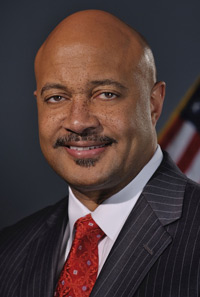Indiana Attorney General Curtis Hill is urging Congress to pass the Veteran Treatment Court Coordination Act of 2019, which would establish a Veteran Treatment Court Program in the U.S. Department of Justice.

Hill
The program would offer financial and technical assistance to states, local communities and tribes that operate Veteran Treatment Courts, which are diversionary court processes similar to drug and mental health courts that address minor, non-violent offenses. The courts pair veterans with mentors to address substance abuse and mental health issues and assist veterans with obtaining U.S. Veterans Administration benefits that can help them with treatment and employment. There are currently more than 450 Veteran Treatment Courts in 40 states and territories.
Hill and 43 other attorneys general signed a letter to Senate leaders supporting the passage of House Resolution 886 (H.R. 886).
Veterans are more likely than non-veterans, the letter notes, to suffer from post-traumatic stress disorder and mental illness and to engage in substance abuse. More than 16 veterans a day commit suicide, and the 2017 suicide rate for veterans was 1.5 times the rate of non-veteran adults.
“We have seen too many cases in our courts,” the letter states, “where veterans commit a criminal offense, often minor or non-violent, which can be attributed in part to a service or combat related injury, mental health problem or substance abuse. Over half of veterans involved with the criminal justice system have substance abuse problems. Sadly, in many cases, veterans are not properly identified, and they become lost in the criminal justice system without the necessary help, medical treatment, and therapy they are entitled to or deserve. This encourages a cycle of recidivism, hopelessness, non-recovery, and sometimes, serious injury or death.”
Since Sept. 11, 2001, more than 3.3 million Americans have voluntarily served in uniform.
“America’s veterans have sacrificed immensely to protect the freedom and security of their fellow citizens,” Hill said. “They often return from service with mental and physical battle scars that few of us can imagine. The very least we can do as a grateful nation is to support these kinds of efforts to provide them the specialized care and treatment they need to heal their wounds and re-adjust to civilian life.”
